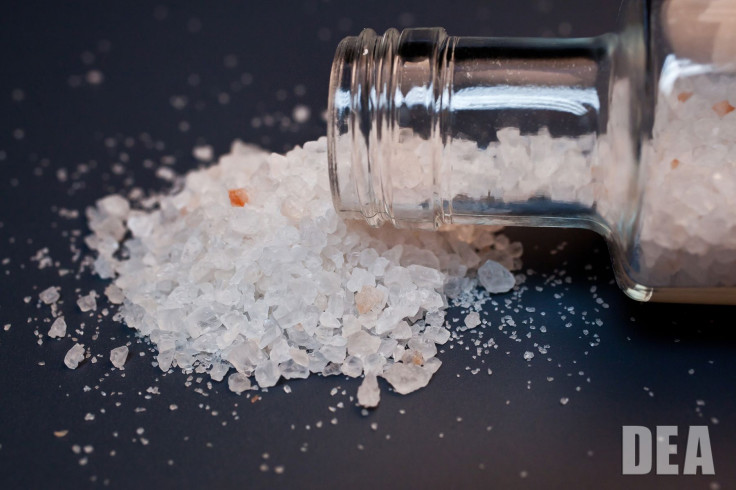Flakka Drug Addiction 2015: Scientists Say Dangerous Recreational Drug Is As Addictive As Bath Salts

Strange things happen to people who get high on flakka. Just last week, a teenage girl who had taken the new recreational drug ran toward police officers in south Florida, naked and covered in blood, claiming she was both God and Satan. In April, a flakka-crazed man in Melbourne, Florida was arrested after attempting a sexual act with a tree. Another was impaled through the buttocks while trying to climb over a 10-foot-high fence surrounding the Fort Lauderdale Police Department. It took rescuers several hours to get him down.
Flakka is the street name for a cheap synthetic drug with the active chemical ingredient of alpha-PVP (alpha-Pyrrolidinopentiophenone), which makes it a chemical cousin to MDPV (methylenedioxypyrovalerone), or the drug known as bath salts. The latter is thought to be one of the world’s most addictive substances. Users of flakka achieve an intense high, but the drug can also cause aggressive behavior and panic-inducing hallucinations.
Now, scientists at Scripps Research Institute in La Jolla, Calif. have confirmed that theclose chemical relationship also means that flakka is as addictive as bath salts in tests with rats. Researchers used a classic lever test in which they train rats to self-administer a drug with the simple push of a lever. Over the course of 20 days, the rates pushed the lever progressively more to receive flakka during daily one-hour sessions – a sign of the drug’s highly addictive properties.
In a separate experiment, researchers made it more difficult for rats to obtain a dose by requiring them to press the lever repeatedly before the system would administer the drug. The researchers found that the rats were willing to push the lever hundreds of times in order to receive a single dose.
Overall, the rats pressed the levers with roughly the same persistency to obtain flakka as they did for bath salts. The rats also exhibited several of the same physical signs associated with stimulant use once they took flakka, including elevated body temperature and an increase in physical activity.
“Our data show that flakka is as potent as MDPV, making it a very good stimulant, arguably with worse addiction liability than methamphetamine,” Tobin J. Dickerson, a chemist at Scripps who led the study, says in a news release. The research was funded by the National Institutes of Health.
The drug has become popular throughout South Florida only in recent years – the Drug Enforcement Administration reported no cases of flakka use in 2010 but logged 670 related incidents in 2014. Flakka is manufactured in China, India and Pakistan and can be purchased in the U.S. for as little as $5 per dose. The DEA issued a temporary ban on the substance in 2014 and the agency will likely declare a permanent ban in the future.
© Copyright IBTimes 2025. All rights reserved.






















